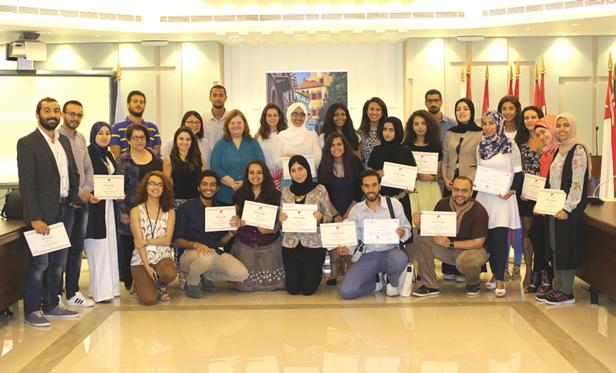The Arab Council for the Social Sciences (ACSS) launched its first Summer Institute with the first subject-focused summer session in Beirut between July 14-26, 2016.
The 2016 undergraduate summer session, centered around the theme of Arab cities, is entitled “The City is Ours: Multidisciplinary Social Science Approaches to the study of the Arab City”. The undergraduate ACSS summer sessions aim to fill serious gaps in the knowledge and skills of undergraduate social science students in the Arab world. Lectures, and group and individual work will be conducted in Arabic.
The ACSS Summer Institute offers social science students and academics interested in enriching their academic pursuits the opportunity to accelerate their learning under instructors with expertise in the course subject areas, as well as connect with peers that have similar interests.
Each multi-disciplinary summer session will focus on a specific theme or area of study. Some sessions may be linked to, or serve as extensions to, ACSS online/blended learning courses. Core social sciences skills involved in writing, research methods, presenting, and research ethics will be taught during each Summer Institute session.
As part of the 2016 Summer Institute session, UNESCO organized on July 21-22, 2016 a two-day MOST (Management of Social Transformations) School on ““Inclusive Cities: SDGs, Youth and intercultural dialogue in the Arab region”.
MOST is UNESCO’s intergovernmental science programme on social transformations. MOST works with governments, social and human science communities and civil societies to improve connections between knowledge and action, connections that are one key to positive social change.
Twenty of the best students participating in the ACSS blended learning course, titled “The City is Ours: An Introduction to Arab Cities”, were selected to attend this first summer session. Additionally, UNESCO supported the participation of three Syrian students during the MOST school.
This pilot projected targeted students in Egypt, Morocco, Oman and Lebanon. The ACSS hopes to expand the project to other Arab countries in the coming years.

